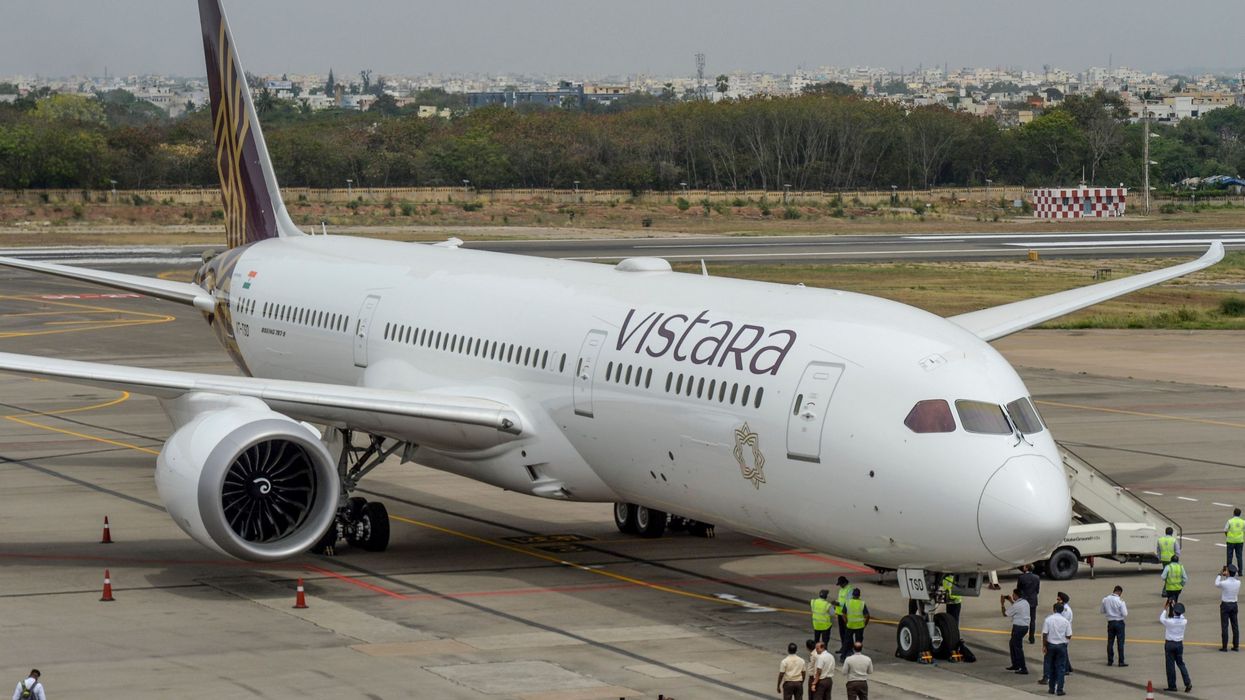Vistara announced on Wednesday (16), that a child who was a passenger on a flight from New Delhi to Frankfurt experienced injuries as a result of a hot beverage spillage last week.
The airline has committed to covering all medical expenses related to the incident.
The occurrence took place on flight UK25, on August 11.
The girl, approximately 10 years old, was accompanied by her parents, an informed source confirmed.
In a detailed statement, the airline also said it is reviewing and refining processes, wherever required, to avoid such situations in the future.
An unfortunate incident occurred where a child sustained injuries due to spillage of hot beverage on the body, an airline spokesperson said.
"Our cabin crew had served hot chocolate to the child on the request of her parents, however, the hot water spilled on her since the child was playful during the service. In line with the SOPs, our crew immediately provided first-aid as warranted for the spill, and sought support from a paramedic onboard, who volunteered to assist until the flight landed in Frankfurt," the spokesperson said in the statement.
According to the airline, it ensured medical care immediately upon landing by arranging an ambulance and the child, along with her mother, was sent to the hospital.
The girl's mother, Rachna Gupta wrote on her Twitter handle @GuptaRachna76 that the airline's air hostess caused "second degree burn to 10-year-old on flight to Frankfurt. An unfortunate accident poorly handled. (Air) hostess, captain, or crew members didn't apologise. After basic first aid on flight, my daughter and I were left in an ambulance to fend for ourselves (pay for ambulance/ navigate the German medical emergency services) in an unfamiliar environment."
In a statement, Vistara said its teams have been in touch with the customer ever since.
"We have already facilitated their early return to India, arranged for ground transportation in Frankfurt, met them at the airport and extended extensive on-ground support. We have conveyed to the customer that all medical expenses arising from this incident will be reimbursed by us.
"We continue to discuss with the customer and provide any further assistance as required. We are also reviewing and refining our processes, wherever required, to ensure such situations are avoided in the future. As always, safety and comfort of our customers is of utmost importance to us," the spokesperson said.
However, Rachna also tweeted, "Our luggage had to be taken out by a friend of a friend who made 3 trips to the airport and spent 4-5 hours pillar to post."
A full-service carrier, Vistara is a joint venture between Tatas and Singapore Airlines.
(With inputs from PTI)




